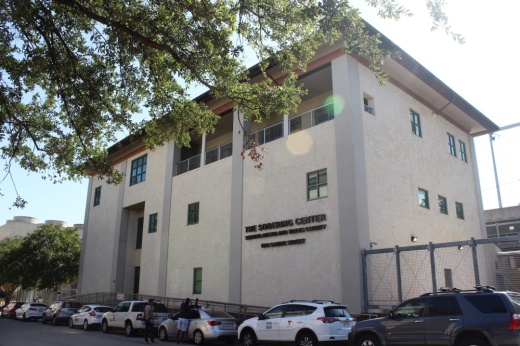County commissioners originally directed staff to study the possibility of combing a mental health diversion program with the Austin-Travis County Sobering Center on June 15. At the same time, the court voted to postpone moving forward with design plans on a new, roughly $80 million women's jail in Del Valle amid calls from advocacy groups to prioritize diversion programs rather than an overhaul of the county's aging carceral facilities.
County Executive Sherri Fleming said a feasibility study for the pilot program would likely extend through the end of the year. First steps will include forming an advisory council that will develop a mission, proposed budget and scope of services for the program.
"We would want to work with our criminal justice partners to further define both the population and the potential infractions that we would want to identify," Fleming said.
The council will also consider existing structures that could be bridged to the diversion program to offer wraparound services to people admitted to the Sobering Center during mental health crises, in order to give people needed aid and minimize recidivism.
Fleming said one group that may be considered for the diversion program is those charged with criminal trespass who also present symptoms of mental illness. Between 2015 and 2020, the number of people booked into jail with criminal trespass as their highest charge increase by 40%, with 73% of those individuals reporting they were experiencing homelessness at the time of their booking.
However, the Sobering Center is built to be a short-term facility, and would not be able to serve as long-term shelter for people experiencing homelessness. Commissioners said the program could ultimately highlight a need for longer-term solutions at the intersection of homelessness and mental health.
"This is a narrow look that allows us to begin work on this more quickly than if we were starting from scratch," Commissioner Brigid Shea said. "It won't answer all questions."
Joseph Myers, a Travis County resident who weighted in during the commissioners' discussion of the program, said the diversion program could benefit people like his adult son, who lives with a serious mental illness.
"I can say that the fear of my son becoming entangled in the criminal justice system as a result of symptoms of his illness—and it is a medical illness—is probably my greatest fear," said Jospeh Myers, a Travis County resident who called in. "Having a diversion center in Travis County will be a tremendous humanitarian step for people like my son."
Myers pointed out that Houston and San Antonio already have operational mental health diversion programs, and Tarrant County officials are in the process of creating a similar program in Dallas.
City of Austin officials have backed Travis County's efforts to establish a mental health diversion process, with city council member Kathie Tovo sponsoring a resolution in support of the program up for approval July 29.





